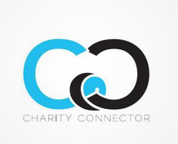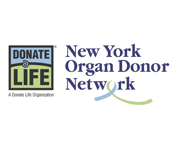
Key ACA milestone a long-awaited goal of non-profit organization’s inspiration, Eric De La Cruz
NEW YORK, NY – OCTOBER 1, 2013 – Despite tea party protests, a Supreme Court challenge and an ongoing government shutdown saga, a critical cornerstone of the Affordable Care Act goes live Tuesday when hundreds of thousands of people can begin choosing affordable health insurance in new online marketplaces. And the historic nature of the day is not lost on Eric De La Cruz Hope For Hearts Foundation founder Veronica De La Cruz.
“Without a doubt, today is a day I wish my brother Eric were here to see,” stated De La Cruz, who’s brother Eric passed away in 2009 while awaiting a heart transplant delayed by insurance denials. “After so much debate, rhetoric and political obstructionism, health care is finally accessible to all Americans and – in the words of President Barack Obama – is ‘here to stay.’”
“Though they come four years too late to help my brother, the Affordable Care Act’s health insurance exchanges provide more equitable, affordable access to health care coverage for all Americans,” noted De La Cruz.
Before forming the Hope For Hearts Foundation in Eric’s memory, De La Cruz fought tooth-and-nail to get him insured by private insurers, only to have them turn Eric away, one by one, because he had a pre-existing medical condition. The limited insurance Eric did have, through Nevada Medicaid, was not portable. Since his only options for a transplant operation were in the states of California or Utah (there are no heart transplant facilities in Nevada), without private insurance, the time left on his life slowly ticked away.
“Had Eric been alive today we could have gotten him into a transplant facility to properly treat his cardiomyopathy,” said De La Cruz, who established Hope For Hearts as a 501(c)(3) non-profit in 2010 to help other transplant patients and their families. “By using the health care exchanges put in place today, my brother could have gone to California or Utah – where the nearest transplant facilities were – for surgery and treatment. If we had the exchanges in 2009, he might be alive today.”
“Without a doubt, today is a day I wish my brother Eric were here to see,” stated De La Cruz, who’s brother Eric passed away in 2009 while awaiting a heart transplant delayed by insurance denials. “After so much debate, rhetoric and political obstructionism, health care is finally accessible to all Americans and – in the words of President Barack Obama – is ‘here to stay.’”
People across the country will now finally be able to compare coverage plans and rates through highly debated and much discussed health care exchanges. These online marketplaces are set up by individual states, so residents should go to their state’s official health marketplace to view options or find navigators trained to educate people about their options.
For decades, the U.S. has been the only major industrialized nation without a national health care system. Even when the Affordable Care Act is fully enacted, the country will not have a single, government-run health insurance covering all citizens, like many other nations do.
Instead, the ACA relies on state-by-state health insurance marketplaces to provide better options for people who don’t have coverage through employers, who simply can’t afford an individual policy, or have a pre-existing health condition that would disqualify them under the current system. The federal government will run the exchanges in the states that have, to date, refused to do so (primarily Republican states). The health coverage won’t be free, even after federal subsidies tied to income. But the combination of subsidized private insurance through these new marketplaces, plus expanded Medicaid coverage in states participating, could reduce the number of uninsured by 50% or more in several years, according to government budget agencies.
De La Cruz described the exchanges as a public-private partnership where the private sector provides the insurance product and the government sets the rules.
“It’s the beginning of a more equitable system which will give individuals more options, lower costs, and better access to health care coverage that they would otherwise be unable to get,” De La Cruz noted. “It is only going to get better from here.”
Because of the passage of health care reform, several million U.S. residents will now be eligible for health care coverage through either the health insurance marketplace or a Medicaid program expanded to consider childless adults from 18 to 64 for public health care benefits.
Most state exchanges are opening Tuesday, though some states have cautioned that some delays or glitches are expected as the marketplaces get off the ground. To find out more about the healthcare exchanges and locate the online marketplace where you can find coverage, visit the federal website at www.healthcare.gov or call center at (800) 318-2596.
About the Eric De La Cruz Hope For Hearts Foundation
The Eric De La Cruz Hope for Hearts Foundation is a 501(c)(3) non-profit organization that provides financial assistance, educational resources and advocacy for heart transplant patients. Founded by TV journalist Veronica De La Cruz in honor of her brother Eric, the Foundation exists to fulfill his wish that no heart transplant patient would ever again have to suffer because of a lack of insurance or the inability to pay for life-saving medical treatment. If you would like to learn more about the Eric De La Cruz Hope For Hearts Foundation, please visit the organization’s website at www.hopeforheartsfoundation.org.
###






